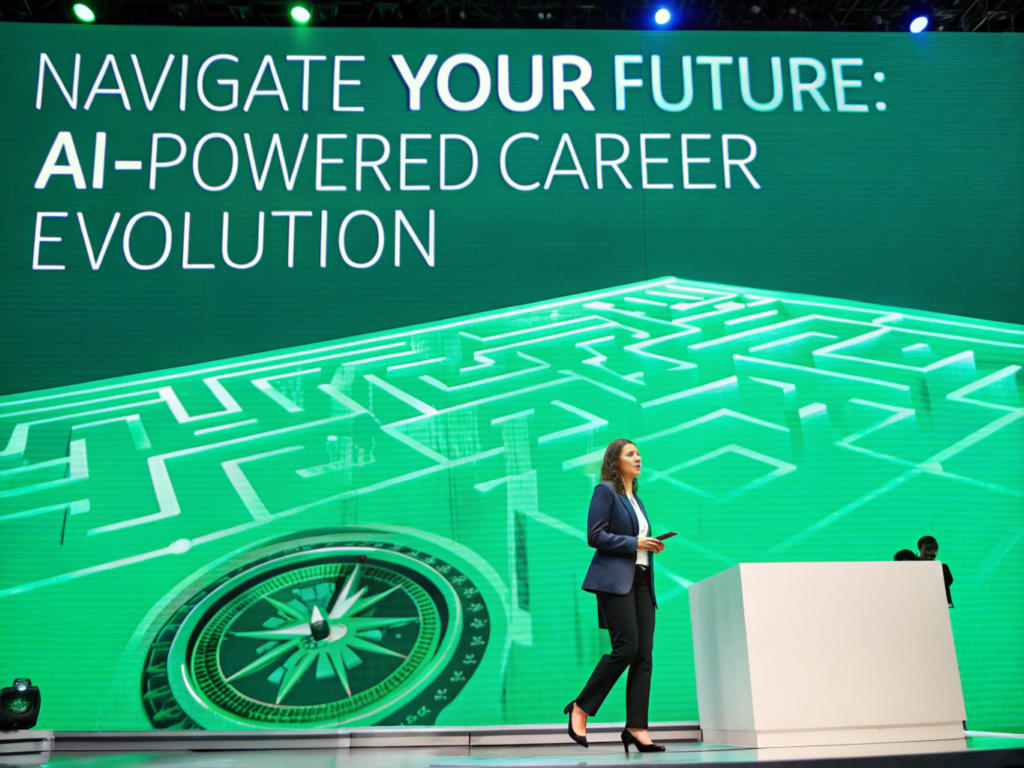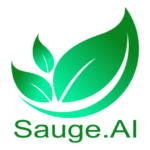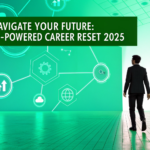Summary – In today’s rapidly evolving workplace, 65% of professionals report feeling uncertain about their career direction, according to recent McKinsey Global Institute research. This uncertainty is compounded by the rise of AI and automation, which are projected to transform 85% of jobs by 2025. Drawing from Deloitte Human Capital Trends, three key solutions emerge: (1) leveraging data-driven self-assessment tools, (2) adopting an experimental mindset through micro-career experiments, and (3) utilizing AI-powered career planning platforms. LinkedIn’s 2024 Global Talent Trends report indicates that professionals who combine traditional career assessment methods with AI-enabled tools are 2.4 times more likely to find satisfying career paths. Here’s how to navigate your career crossroads with confidence in the AI era.
The professional landscape has fundamentally shifted. Boston Consulting Group’s Future of Work research reveals that the average person will change careers – not just jobs – five to seven times in their lifetime. This reality, coupled with the World Economic Forum’s prediction that 50% of all employees will need reskilling by 2025, creates both challenge and opportunity.
The traditional approach to career planning is no longer sufficient. Gartner’s Strategic Technology Trends report highlights how AI and machine learning are revolutionizing career development, making it possible to analyze career paths with unprecedented precision. Yet many professionals still struggle to find their way.
Do you recognize these signs?
- Spending Sunday evenings dreading Monday mornings
- Feeling disconnected from your work despite meeting performance metrics
- Questioning whether your skills align with your current role
- Wondering if there’s a better career fit elsewhere
Recognize the Pattern
Career uncertainty isn’t just about job dissatisfaction. According to SHRM research, 72% of professionals experiencing career doubt are actually competent performers in their current roles. “The challenge isn’t performance – it’s alignment,” notes organizational psychologist Adam Grant. “We’re asking ourselves ‘what career is right for me’ when we should be asking ‘how do I experiment to find out?'”
Modern career assessment goes beyond traditional personality tests. While tools like the Myers-Briggs Type Indicator (MBTI) provide valuable insights, today’s professionals need a more comprehensive approach. AI-powered platforms are transforming how we evaluate career fit, offering data-driven insights that complement traditional assessment methods.
Leverage Modern Tools
The career exploration process has evolved significantly. PwC’s Workforce of the Future report emphasizes the importance of combining human insight with technological capabilities. Here’s how to maximize your assessment journey:
Start with validated assessments: While free personality quizzes abound online, invest time in recognized tools like the MBTI career test or comprehensive aptitude testing platforms. These provide a foundation for understanding your working style and preferences.
Integrate AI-powered insights: Platforms like Sauge AI’s career assessment tools analyze vast datasets to identify patterns in successful career transitions, offering personalized recommendations based on your profile and market trends.
Document your findings: Create a structured record of your assessment results, reflecting on questions like:
Do you recognize these signs?
- Spending Sunday evenings dreading Monday mornings
- Feeling disconnected from your work despite meeting performance metrics
- Questioning whether your skills align with your current role
- Wondering if there’s a better career fit elsewhere
Recognize the Pattern
Career uncertainty isn’t just about job dissatisfaction. According to SHRM research, 72% of professionals experiencing career doubt are actually competent performers in their current roles. “The challenge isn’t performance – it’s alignment,” notes organizational psychologist Adam Grant. “We’re asking ourselves ‘what career is right for me’ when we should be asking ‘how do I experiment to find out?'”
Modern career assessment goes beyond traditional personality tests. While tools like the Myers-Briggs Type Indicator (MBTI) provide valuable insights, today’s professionals need a more comprehensive approach. AI-powered platforms are transforming how we evaluate career fit, offering data-driven insights that complement traditional assessment methods.
Leverage Modern Tools
The career exploration process has evolved significantly. PwC’s Workforce of the Future report emphasizes the importance of combining human insight with technological capabilities. Here’s how to maximize your assessment journey:
Start with validated assessments: While free personality quizzes abound online, invest time in recognized tools like the MBTI career test or comprehensive aptitude testing platforms. These provide a foundation for understanding your working style and preferences.
Integrate AI-powered insights: Platforms like Sauge AI’s career assessment tools analyze vast datasets to identify patterns in successful career transitions, offering personalized recommendations based on your profile and market trends.
Document your findings: Create a structured record of your assessment results, reflecting on questions like:
- What patterns emerge across different assessment methods?
- How do your current skills align with potential career paths?
- What gaps exist between your interests and your current role?
Take Strategic Action
MIT Sloan Management Review research shows that successful career transitions follow a clear pattern. Begin with these steps:
- Conduct informational interviews in fields of interest
- Experiment with side projects to test new roles
- Build skills incrementally while maintaining your current position
- Leverage AI tools for resume enhancement and LinkedIn profile optimization to position yourself effectively
As Herminia Ibarra from INSEAD Knowledge explains, “Career change is not a one-time decision but a series of experiments that help you discover what truly fits.”
Build Your Digital Presence
In today’s AI-driven job market, your digital presence is crucial. Korn Ferry’s research indicates that 92% of hiring managers screen candidates’ online profiles before interviews. Consider:
- Optimizing your LinkedIn profile with industry-specific keywords
- Creating content that demonstrates your expertise
- Using AI-powered tools to ensure your digital presence aligns with your target career path
Move Forward
The Josh Bersin Academy emphasizes that career development is an ongoing journey, not a destination. As you move forward:
- Set clear milestones for your transition
- Build a support network of mentors and peers
- Regularly reassess your progress using both traditional metrics and AI-enabled insights
- Stay flexible and open to emerging opportunities
Remember, finding the right career isn’t about taking one perfect test or making one perfect decision. It’s about combining robust assessment tools, modern technology, and strategic action to create a path that evolves with you.
“The most successful professionals,” concludes Stanford Graduate School of Business research, “are those who embrace both traditional career wisdom and modern tools to navigate their path forward.”










Comments (0)
No comments yet. Be the first to leave a comment!